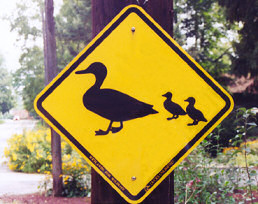 Let’s be honest. The truth is that sometimes we are totally baffled as to why our child with autism does the things s/he does! If you’re the type of parent who’s open to new concepts, and I’ll bet you are, then I’d like to share one with you concerning challenging behaviors. It’s called the Choice Law.
Let’s be honest. The truth is that sometimes we are totally baffled as to why our child with autism does the things s/he does! If you’re the type of parent who’s open to new concepts, and I’ll bet you are, then I’d like to share one with you concerning challenging behaviors. It’s called the Choice Law.
The Choice Law states that at any given moment children have choices…and they will always choose to do what they think will work for them! Doesn’t matter whether they are boy or girl, tall or short, or mild to severe on the spectrum! It’s the law and here’s what it says:
You do what you do because at some level (conscious or unconscious) you believe your choice of behaviors is going to benefit you.
It’s a very highly reliable law of behavior and if you take a few minutes to reflect back on your life history you’ll know that there’s truth to it.
Let me say it another way because it’s important that you get this: if your child did not perceive his/her behavior as generating a positive outcome for himself he would not do it. Plain and simple. No matter how illogical or strange his behavior may seem he is engaging in it in order to create some potential beneficial result.
Let me state it yet another way because it’s really really important that you get this if you are going to successfully trouble-shoot challenging behaviors: if your child chooses to engage in a behavior again and again it is because it produces (at least from his perspective) a potential beneficial outcome. Conversely, if your child does not engage in a behavior again and again it is because it did not produce (from his perspective) a beneficial outcome!
Therefore, one of the first steps in reducing crisis behaviors or de-escalating crisis behaviors is to determine what the perceived beneficial outcome is from your child’s perspective.
But hold on because that’s not where I want to go with this blog post!
The direction that I want to move towards is the understanding and application of how this life law applies to YOU and how YOU respond to your child’s challenging behaviors. If you’re like me, you’ve responded to your child in ways that causes you to shake your head in disbelief and ask yourself:
- “What is wrong with me?”
- “Why on God’s earth do I keep doing that?”
- “I hate myself when I do that, so why do I keep doing it?”
Good questions. Answer: people do what they think will work for them. But that’s just part of the story.
Let’s talk more about this idea applies to parents in my next post…
Author: Michael Woods (Founder of Relational Crisis Prevention)











